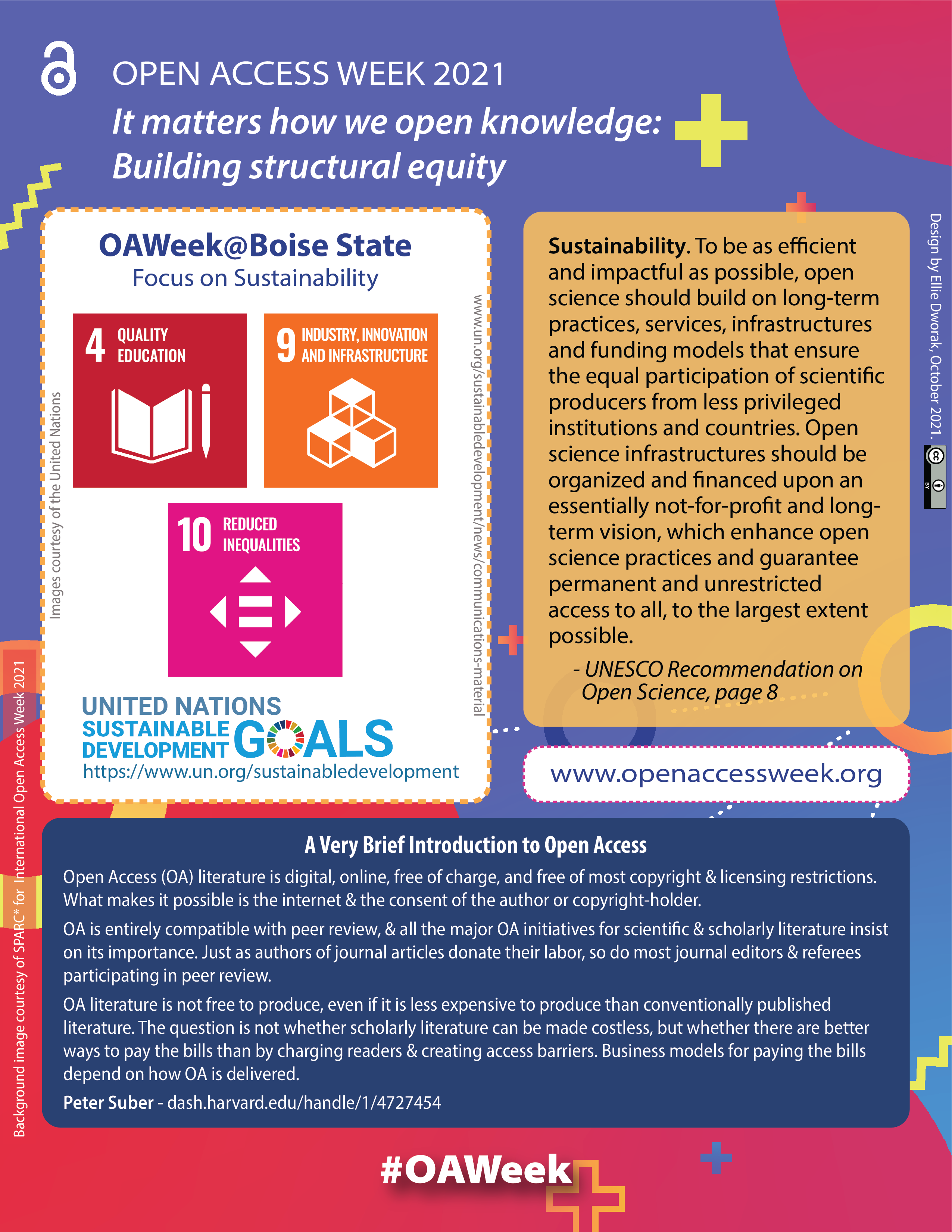Happy International Open Access Week! This year’s theme is It Matters How We Open Knowledge: Building Structural Equity.
Albertsons Library is highlighting the intersection of Open Access and sustainable scholarly communication models. Check out this infographic for more information, and follow us on social media throughout the week for more details and resources.

Text Description
Open Access Week 2021
It matters how we open knowledge: Building structural equity
http://openaccessweek.org
Open Access Week at Boise State: Focus on Sustainability
United Nations Sustainable Development Goals
Goal 4: Quality education
Goal 9: Industry, innovation, and infrastructure
Goal 10: Reduced inequalities
Sustainability
To be as efficient and impactful as possible, open science should build on long-term practices, services, infrastructures and funding models that ensure the equal participation of researchers from less privileged institutions and countries. Open science infrastructures should be organized and financed on an essentially not-for-profit and long-term vision, which enhance open science practices and guarantee permanent and unrestricted access to all, to the largest extent possible.
A Very Brief Introduction to Open Access
Open-access (OA) literature is digital, online, free of charge, and free of most copyright and licensing restrictions. What makes it possible is the internet and the consent of the author or copyright-holder.
In most fields, scholarly journals do not pay authors, who can therefore consent to OA without losing revenue. In this respect scholars and scientists are very differently situated from most musicians and movie-makers, and controversies about OA to music and movies do not carry over to research literature.
OA is entirely compatible with peer review, and all the major OA initiatives for scientific and scholarly literature insist on its importance. Just as authors of journal articles donate their labor, so do most journal editors and referees participating in peer review.
OA literature is not free to produce, even if it is less expensive to produce than conventionally published literature. The question is not whether scholarly literature can be made costless, but whether there are better ways to pay the bills than by charging readers and creating access barriers. Business models for paying the bills depend on how OA is delivered.
By Peter Suber
Official Twitter Hashtag for Open Access Week
#OAWeek